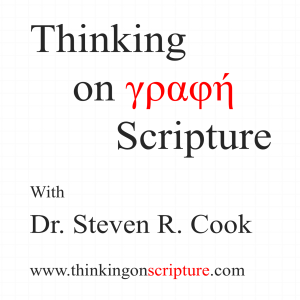
Saturday Nov 09, 2019
Introduction to Zephaniah
Author:
The author is identified as “Zephaniah son of Cushi, son of Gedaliah, son of Amariah, son of Hezekiah” (Zep 1:1a). It could be that Zephaniah was the great-great-grandson of King Hezekiah, who ruled from 715-687 B.C. If so, he would be a cousin to King Josiah, who was reigning during his time of prophetic ministry; and, it would connect Zephaniah with two good kings who ruled in Judah. Also, he could be the priest who was captured and killed in 586 B.C. (2 Ki 25:18-21). However, there is insufficient evidence to determine if either of these extrapolations are true.
Audience:
Zephaniah prophesied to Judah (Zep 1:4).
Date of Ministry:
Zephaniah’s ministry was “in the days of Josiah son of Amon, king of Judah” (Zep 1:1b). Josiah ruled in Judah from 640-609 B.C. Zephaniah’s message, which addresses some of the idolatry and corruption in Judah, was likely before Josiah began his reforms in 622 B.C., or perhaps, in the early stages. His ministry was definitely before the fall of Assyria in 612 B.C., which he prophesied (Zep 2:13).
Historical Background:
Josiah was a good king who followed the reign of two evil kings, Manasseh and Amon. Manasseh reigned fifty-five years and was an evil king (2 Ki 21:1-18). Amon reigned two years and was an evil king (2 Ki 21:19-26). Josiah became king in 640 B.C. when he was eight years old, and he was a good king who walked in the ways of the Lord (2 Ki 22:1-2). In 622 B.C.—the eighteenth year of Josiah’s reign—God’s Word was revealed to him (2 Ki 22:3-20), and he responded positively and instituted religious reforms throughout Judah and destroyed all the false idols and places of worship (2 Ki 23:1-25). These reforms continued until his death in 609 B.C. (2 Ki 23:29). Judah experienced a time of great prosperity and spiritual reform under Josiah’s reign; however, the outward reforms did not lead to regeneration or revival among God’s people, and the following kings reverted back to evil practices and Judah and Jerusalem were eventually destroyed in 586 B.C. This shows that the faith of one generation may not continue to the next.
Zephaniah’s Message:
The theme of Zephaniah is the approaching judgment of God upon Judah for their sin. The subject of the Day of the Lord is prominent in the book.
- "The key to the Book of Zephaniah is the phrase “the day of the Lord.” This phrase appears in most of the prophetic literature of the Old Testament. As we saw in Joel, “the day of the Lord” can be a past day, a day in the relatively near future, or a day in the far distant, eschatological future. It is any day in which God is dynamically at work in human affairs. Wherever we find the phrase “the day of the Lord,” it always suggests a contrast with the day of man. The day of man is any day when man appears to be in control of human affairs. It is a day of God’s patience. The day of the Lord is any day when God is clearly in control of human affairs. It is a day of God’s judgment. The phrase “the day of the Lord” is by no means unique to Zephaniah, but it is the key to the message of this book. Zephaniah used it more frequently than any other prophet. It was his burden. And he explained the meaning of this phrase more than any other prophet."[1]
Zephaniah’s message ends with hope, as God promises a future restoration of His people and a time of blessing (Zep 3:9-20), which is likely a reference to the millennial kingdom.
Outline:
- God’s judgment against Judah (Zep 1:1-2:3)
- God’s judgment against the nations (Zep 2:4-15)
- God’s judgment on Jerusalem (Zep 3:1-8)
- God’s future restoration of Jerusalem (Zep 3:9-20)
[1] Tom Constable, Tom Constable’s Expository Notes on the Bible (Galaxie Software, 2003), Hab 3:19.
No comments yet. Be the first to say something!